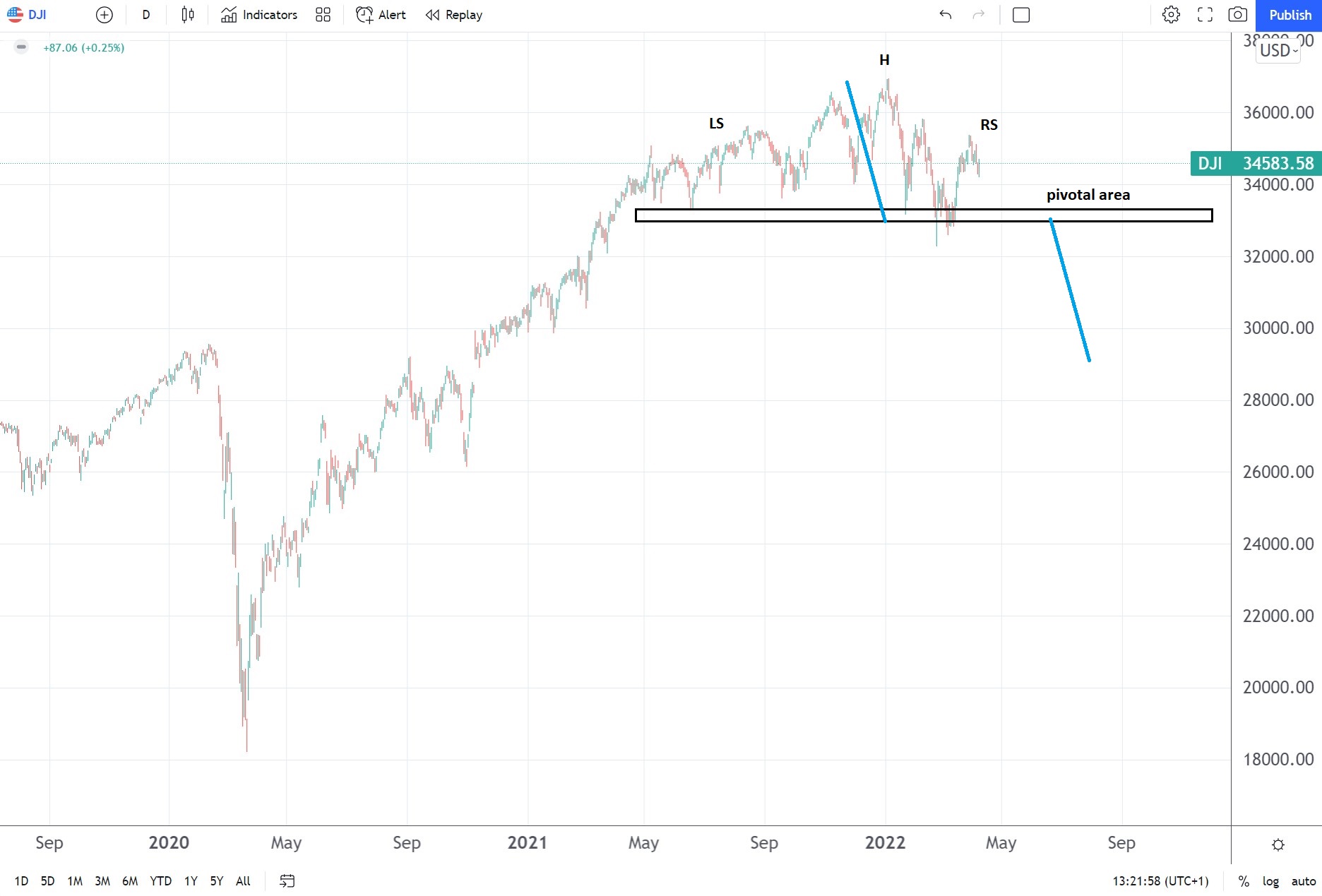Should you buy or sell Dow Jones ahead of the Fed’s upcoming rate hike?
US stocks started Q2 with gains, but fears of aggressive rate hikes may scare investors. So should you buy or sell Dow Jones ahead of the next Fed meeting?
The stock market had a rough start to the trading year. It corrected from all-time highs set in late 2021 trading, and, to many investors, a bear market was inevitable.
After all, everything pointed to more downside – Fed starting a tightening cycle, inflation running out of control, and war began in Eastern Europe. As such, investors had all the reasons to be scared and cash in on their profits made from buying the COVID-19 pandemic dip.
But trading is not as straightforward as it may look. Picking tops and bottoms is pure luck, and often the market moves irrationally.
And so it did recently. Despite everything mentioned above, the equity market bounced, recovering most of its losses.
Dow Jones led the way. It bounced 3,000 points from its 2022 lows – but is this bounce just a bear market rally? Or are we set to see a new all-time high soon?

The bearish case
The daily chart suggests a possible head and shoulders pattern might be in the makings. If that is correct, bears would like to see a close below the pivotal area marked on the chart above.
A daily close below the area should trigger more downside. Because the measured move signals a drop below 30,000 points, it would likely attract more sellers.
The bullish case
On the other hand, the market did not break below the pivotal area yet. This pivotal area acts as the head and shoulders’ neckline, but Dow Jones did a great job holding above so far.
In other words, despite the possible reversal pattern, the bias remains bullish while the market trades above the neckline. As long as it does that, another attempt to all-time highs should not be ruled out.
What did the Fed signal?
The Fed is all over the place, signaling faster monetary tightening. From a 50bp rate hike in May to 50bp rate hikes at each meeting, the Fed members emphasized the need to tackle inflation with much higher rates.
On top of that, the balance sheet reduction begins soon. As such, financial conditions will tighten, which should negatively impact the stock market.
But the stock market behaved nothing as usual since the COVID-19 pandemic started. So why should it do so now?
